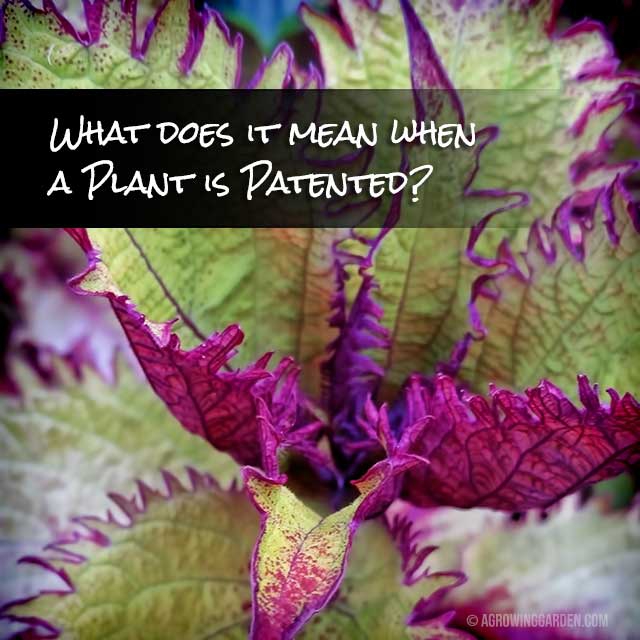
I've been obsessed with taking cuttings lately in an effort to try to increase the number of plants that I have here ... just in the past few weeks alone I've started rooting various rosemary, lavender, coleus, gardenia, a dwarf lemon tree, and eleagnus bushes and I'm thinking about doing a few more types of plants before we get our first killing frost.
Creating new plants from cuttings is very easy and is a great way to quickly create more plants for your garden. However, did you know that some plants are patented and it is illegal to propagate them yourself through cuttings?
Now, let me start off saying that I am not an attorney and in no way should you take anything I say as legal advice. If you are looking for definitive answers about what you can and can't do with a patented plant, you should talk to a patent attorney. But, here is my layman's understanding of the law regarding patented plants....
What is a Plant Patent?
According to the US Patent and Trademark Office (USPTO),
"A plant patent is granted by the Government to an inventor (or the inventor's heirs or assigns) who has invented or discovered and asexually reproduced a distinct and new variety of plant, other than a tuber propagated plant or a plant found in an uncultivated state. The grant, which lasts for 20 years from the date of filing the application, protects the inventor's right to exclude others from asexually reproducing, selling, or using the plant so reproduced."
From my understanding of this, a plant that has been patented cannot be reproduced or propagated by taking cuttings, tissue culture or any other method of asexual propagation without the written authorization or licensing of the patent holder. The seeds and/or pollen from a patented plant, however, may be used without permission of the patent holder and any offspring created from the seeds of a patented plant are free of the patent regulations placed on the mother plant.
I'm rather surprised at how much misinformation there seems to be about this online. There are many websites, forums, and blogs where people (who are obviously not patent lawyers) talk about it being acceptable to propagate a patented plant for your own garden as long as the user doesn't sell the propagated plants.
I, however, don't see that anywhere in the USPTO descriptions, definitions, or regulations and have no idea where they would get the idea that propagating patented plants for you own use is ok. Perhaps those people stopped reading the USPTO plant patent definition before they got to the part that says "or using the plant so reproduced"?
Of course, it is rather unlikely that anyone would know that you propagated a patented plant for your use and in your own gardens, but there isn't anything that I can find that says it is legal to do so! It seems to me from the UPSTO definition that a plant that is patented cannot be legally propagated by ANYONE without the permission from the patent owner.
Period.
While it's true that I (as someone who loves to propagate plants of all types) pretty much think this stinks of, well, big fat stinky things ... I also understand and respect it too. A lot of time and money goes into creating new and exciting varieties of plants and the "inventors" of those new and exciting plants should be duly compensated. After all, that's the type of thing that spurs innovation!
Plant patent protection creates an incentive for scientists, plant breeders and professional growers to create new varieties of plants and if you want to grow those plants, you should respect the patents. Patent owners should be compensated for each plant you grow while the patent is in effect. If you don't like the propagation restrictions placed on patented plants, you don't have to grow them, right?
Now, I don't usually run into issues with patented plants myself because I prefer to grow heirloom and non-patented varieties and I also usually try to start to grow new varieties of plants from seed. I don't normally buy many potted plants either, but this spring I did buy two small potted coleus plants on a whim from a local nursery. I kept their plant tags (whew!) and, when I started my plant cuttings frenzy a few weeks ago, realized that one of them was patented.
HUGE BUMMER!
Since I can't legally propagate my "Henna" coleus plant by cuttings, I've potted it up and brought it into the house to over-winter it. Of course, I could just buy another plant or two (or ten) in the spring too ... and I may still do that because I REALLY love it (it's a very interesting coleus & really beautiful!), but because it's patented, I can't legally propagate it myself from cuttings until 2028 (it was patented in 2007/2008).
So, how can you tell if a plant is patented?
If a plant is patented, it should be marked as such on it's label. It may say "Patented" or "Plant Patent" or "PP" and have a patent number. I've included below some photos of the plant label for the patented "Henna" coleus plant I bought earlier this year. As you can see, the label includes the common name of the plant ("Coleus") at the top of the label and below the picture shows the scientific name ("Solenostemon hybrid") and then the cultivar information. The patent number is usually included on the tag after the name of the cultivar ("Balcenna").
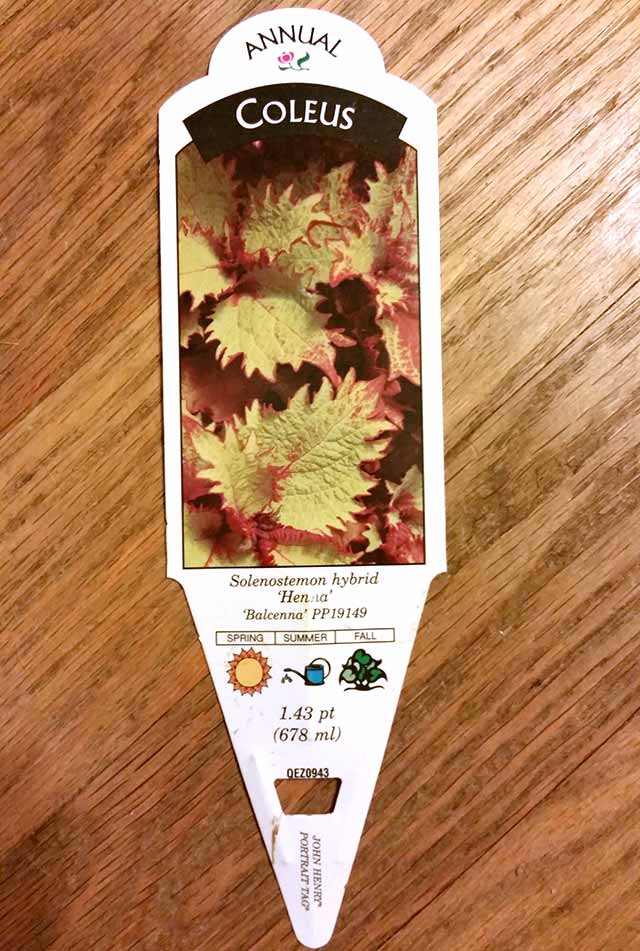
In this case, 'PP19149' is the patent number. Once you know the patent number for the plant, you can also look it up on the USPTO website to get more information about it including the year it was patented (plant patents expire after 20 years) and sometimes information about the variety it most closely resembles or it's parentage.
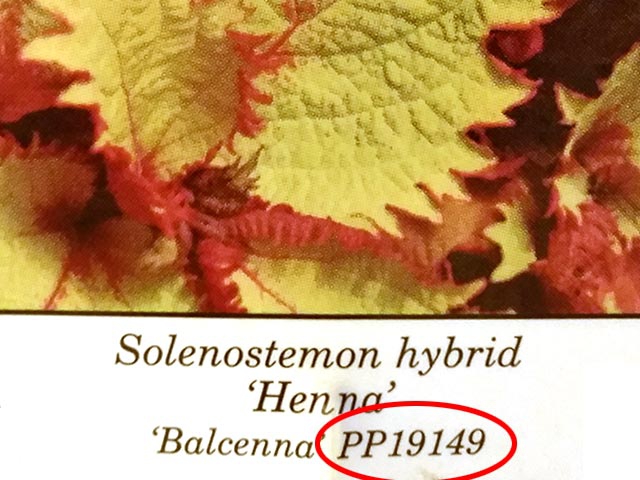
Alternatively, there may be other indications on the label that a patent has been applied for, such as the phrase "patent pending." In the case of my coleus label, the grower included "propagation strictly prohibited" on the bottom of the label as well -- I guess to give an additional warning not to try to propagate it.
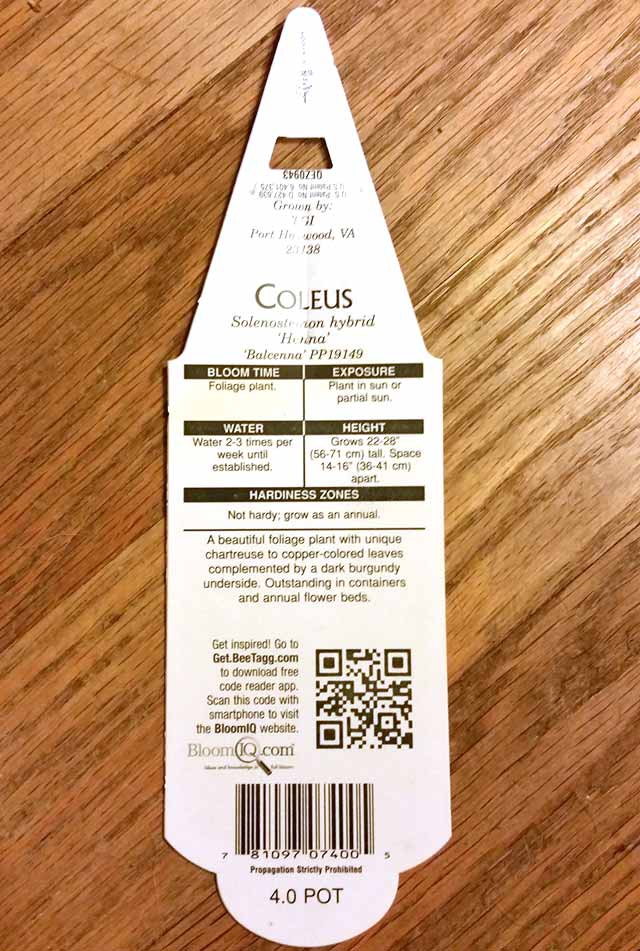
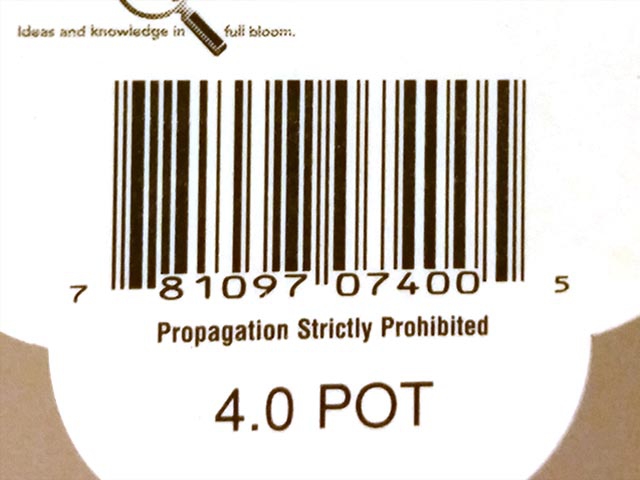






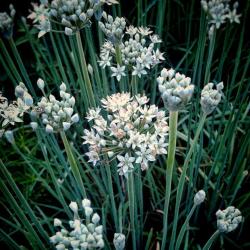

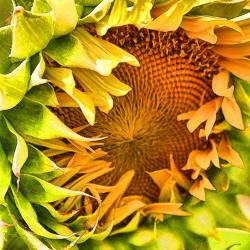



Join the Conversation!
Horticultural Zone: 5
November 9, 2014
WOW, I never knew this! thank you for this post!!
Reply